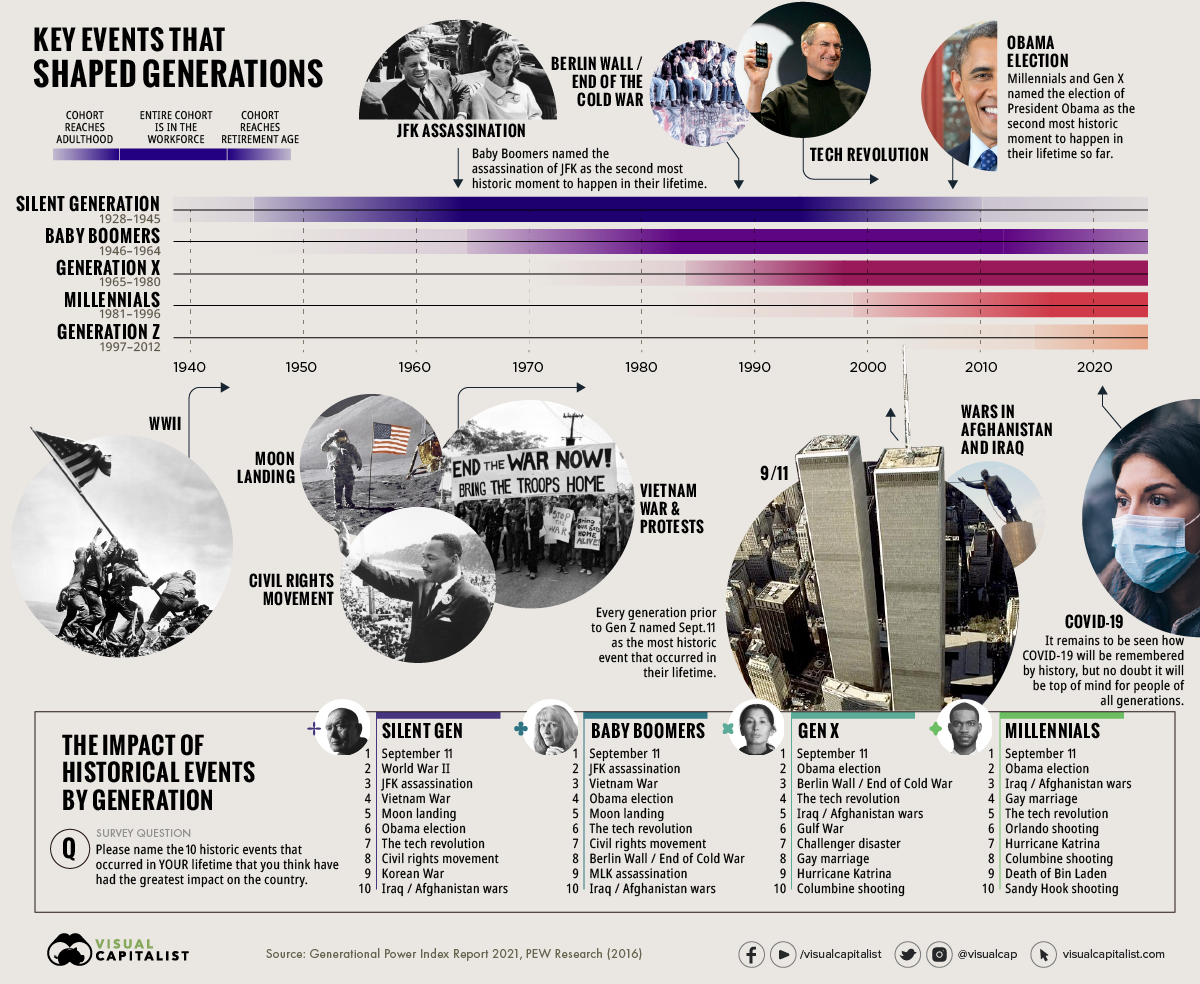Key Events in U.S. History that Defined Generations

Source: Visual Capitalist
Why do we dump people of very different ages and experiences into the same overly broad demographic groups? Is this the work of marketing executives or lazy statisticians?
Take the Silent Generation (1929-1945) — a person born the year the stock market crashed heading into the Great Depression, how similar will their life experience be to a person born at the end of WW2? Is growing up in the 1930s and the 1950s remotely similar?
That chart has my younger Gen X sister a Boomer. Millions of GIs returning home from the war in the 1940s which led to the massive post-war baby boom in the 19490s/50s — is that related to the people born in the 1960s?
We should be wary of models that oversimplify and artificial constructs like these. They are broad over-generalizations that can easily lead the unwary astray. Look no further than the books claiming demographics as key drivers of the economy and stock markets — follow the advice of any of them and you’ll soon find yourself reliving a personal version of the Great Depression.
Perhaps it is more useful to think of specific traits of birth-years clustered together slowly morphing from one group of cultural characteristics to another over time. If you were born in “border year” (beginning or end of any generation) you may not self-describe as either: E.G., Millenials with a cusp on GenZ.
I always felt I was in the valley between the Boomers and GenXers, and looked askance at both. A factor in becoming a contrarian? (I don’t know).
Don’t get me wrong, big events have big repercussions: WW2, Moon Landing, Watergate/Vietnam, Dotcom implosion, 9/11, GFC, Covid-19, the January 6 insurrection. But I never find these sorts of demographic analyses especially useful…

